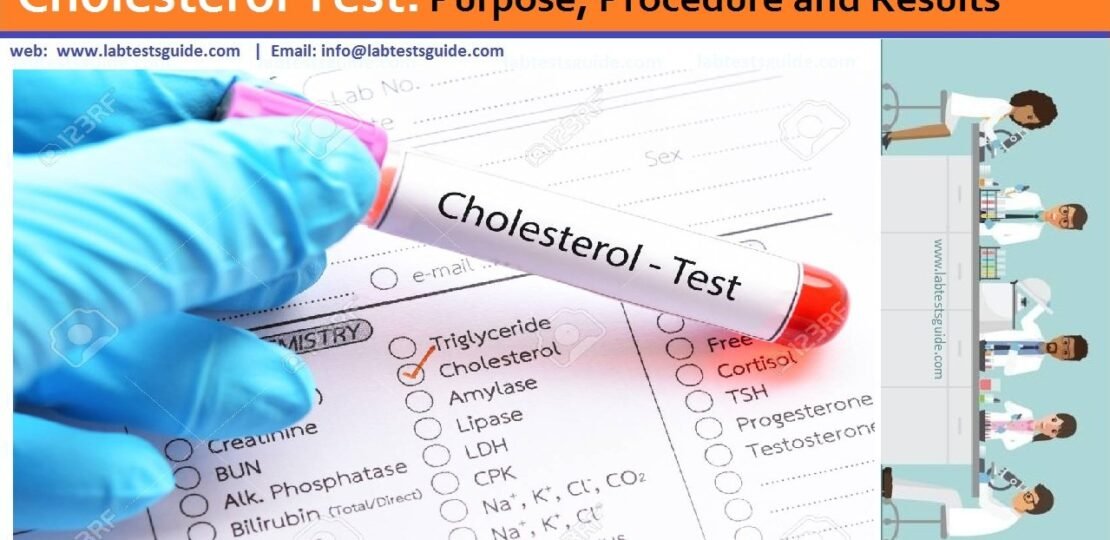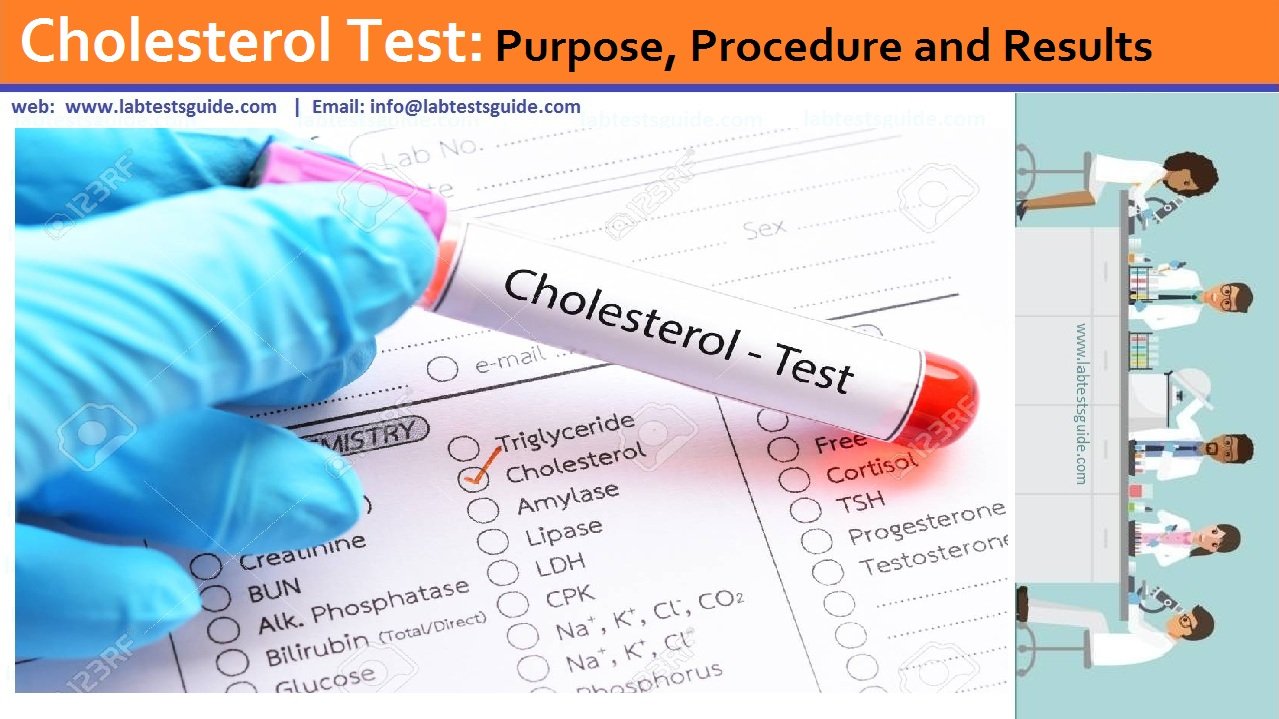
A cholesterol test is a blood test that measures the amount of each type of cholesterol and certain fats in your blood. Too much LDL cholesterol in your blood may put you at risk for heart disease and other serious conditions.
Also Known As: Blood Cholesterol
Test Panel: Cholesterol, HDL Cholesterol, LDL Cholesterol, Triglycerides, VLDL Cholesterol, Non-High Density Lipoprotein Cholesterol

Why Get Tested:
- Cholesterol level is estimated to determine the coronary artery disease risk.
- This test may be needed to rule out hyperlipidemia.
When to Get Tested:
- Screening: as part of a regular health exam with a lipid profile
- when no risk factors for heart disease are present.
- Adults should be tested once every four to six years
- Children, teens, and young adults should be tested once between the ages of 9 and 11 and then again between the ages of 17 and 21.
Sample Required:
- The best sample is after 12 hours of fast and that is the morning sample.
- The best sample is serum and separated within 2 hours of the collection.
- This test may be done on Serum or Plasma (EDTA) but not oxalate, citrate or fluoride.
- The serum is stable at 4 °C for 5 to 7 days and 3 months at -20 °C.
- Avoid freezing and thawing.
- The result with EDTA plasma is 3% lower than serum.
- Sample with Cholesterol above 500 mg/dL should be diluted.
Normal Values :
- Adult
- The desired level to prevent coronary disease is < 200 mg/dl
- Moderate risk is 200-239 mg/dl
- High risk is > 240 mg/dl
- CSF <0.5 mg/dl
- Childrens:
- Desirable level is < 170 mg/dl
- Moderate risk is 170-199 mg/dl
- High risk is > 200 mg/dl
- Above 240 mg/dL = needs treatment.
| Cholesterol mg/dL | Risk |
| <160 | Very low |
| 160 to 199 | low risk |
| 200 to 239 | moderate risk |
| 240 to 279 | high risk |
| >280 | very high risk |
Increased Cholesterol (Hypercholesterolemia):
- Familial combined hyperlipidemia.
- Hyperlipoproteinemia type, 1V, V.
- Intra- and extrahepatic cholestasis.
- Glomerulonephritis.
- Nephrotic syndrome, and chronic renal failure.
- Malignant neoplasm of pancreas and prostate.
- Hypothyroidism.
- Gout.
- Diabetes mellitus.
- Alcoholism.
- Glycogen storage diseases type 1 (Von Gierke disease).
- Stress.
- biliary cirrhosis.
Decrease Cholesterol (Hypocholesterolemia):
- alpha-Lipoprotein deficiency.
- Hepatocellular necrosis.
- Malignant neoplasm of the liver.
- Hyperthyroidism.
- Malabsorption and malnutrition.
- Severe acute illness.
- Extensive burns.
- Rheumatoid arthritis.
- Cholesterol-lowering medications.
Risk factors are:
- Cigarette smoking.
- Cerebrovascular disease.
- Diabetes mellitus.
- Hypertension.
- The family history of coronary heart disease.
- Sex as in male.
- Overweight >30%
- peripheral occlusive vascular disease.
Related Articles:
RSS Error: https://www.labtestsguide.com/category/tests/feed is invalid XML, likely due to invalid characters. XML error: > required at line 490, column 16
RELATED POSTS
View all

